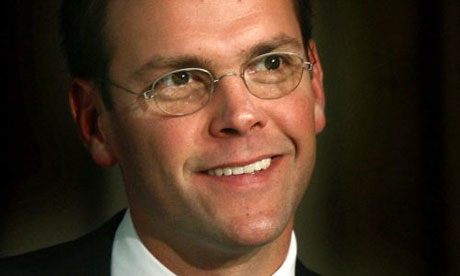The regulator’s heavy-handed response to a media revolution is injurious to a free society
We are in the middle of a tremendous and welcome shift in power - from elites to individuals and communities. For the media, that means a shift from content controlled by a few to that created, adapted, or distributed by a multitude.
Look at broadcast journalism - for so long the preserve of the state or the wealthy. It is now open to almost anyone, with technology costing less than £50. Coverage of last year’s attempted bomb attack at Glasgow airport was better and faster because of immediate access to material provided by witnesses from their mobile phones. These people are partners, as well as an audience, in the act of creating a product.
But not everyone sees this new world as a blessing. The annual plan of Ofcom, the UK media regulator, warns that the combination of convergence and more intense competition can lead to “confusion and anxiety”, and foresees the need “to intervene decisively to protect people from actual or potential harm whenever this proves necessary”.
But people are smart. They understand the media. Isn’t such “confusion and anxiety” in the minds of elites who are terrified by people taking power from them? Dealing with actual harm is one thing, but is it the job of a regulator to invent sources of potential harm and forestall them? What they are really saying is that competition and innovation may result in an outcome different to the central planner’s carefully constructed fantasy about how a market might work.
For many years, Britain had a vibrant and diverse newspaper sector but a stagnant television oligopoly. The delight that papers take in upsetting the governing elite has rankled with the powerful for decades. Their willingness to take on the authorities has been as characteristic as the elitist outrage it evokes. Radio and TV allowed elites the opportunity to exert the kind of grip, through control of spectrum, that had not been possible with newspapers. They created a state system that stifled innovation and institutionalised groupthink.
The establishment response to the onset of choice in television was partly fear of what might happen and partly derision - no one could possibly want anything other than four channels. The reality turned out to be rather different.
Faced with an even more fundamental revolution, some critics believe that the increase in bandwidth and connectivity does indeed transfer power. But they see this transfer as from elected politicians to various - they would say nefarious - media and communications firms that have become the new powers in the information economy.
That it is not only wrong on the facts, but dangerous in its implications. It ignores the absolute power of competition. But it also ignores the bigger picture. Without a free, unmolested media there can be no genuine free society. A democracy can only be effective and judicious if its decisions are clear to the general public, debated, challenged and scrutinised. As the Romans established, the fundamental question when examining any decision is “who gains?”. A free media allows that question to be put.
It remains the job of the media, as a campaigning reporter once observed, “to comfort the afflicted and afflict the comfortable”. That’s wise, it’s right, and good journalism should go on doing just that.
· James Murdoch delivered the Marketing Society annual lecture last night. He is executive chairman and chief executive of News Corporation in Europe and Asia, and non-executive chairman of BSkyB
– by James Murdoch





























No comments:
Post a Comment